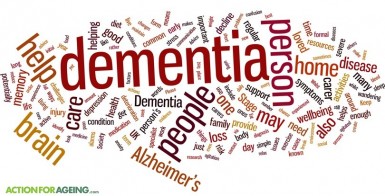There is a new bill in Parliament that supports CARP’s call for a paradigm shift for dementia care, which is outlined in a recent policy paper titled CARP’s New Vision for Living in the World of Dementia. The proposed bill and CARP’s recommendations aim to reduce the daily burden of dementia and to support those living with dementia and their families. NDP MP Claude Gravelle has introduced Bill C-356, an Act establishing a National Strategy for Dementia that will work towards a broad, all party and non-partisan support for an issue that touches millions of Canadians.
750,000 Canadians live with dementia and millions of informal caregivers are providing the necessary care. The reach of dementia is widespread and it will continue to grow. Within 20 years, the number of Canadians with dementia is expected to double to 1.4 million.
Pressures on family caregivers are mounting. According to findings released by Alzheimer Society of Canada in 2011, family caregivers spent 444 million unpaid hours per year looking after someone with dementia, representing $ 11 billion in lost income and 227,760 lost full-time equivalent employees in the workforce. By 2040, they will be devoting a staggering 1.2 billion unpaid hours per year to help family and friends with dementia
The Billcalls for a national strategy that includes increasing funding for research into all aspects of dementia, promoting earlier diagnosis and intervention, strengthening the integration of primary, home, and community care, followed by enhancing skills and training of the dementia workforce and recognizing the needs and improving supports for caregivers, all of which CARP advocates for and supports.
If the Bill passes, within 30 days of the Act coming into force, the Health Minister must initiate discussions with provincial and territorial departments, to develop a comprehensive national plan addressing all aspects of Alzheimer’s disease and related dementias. The national plan would then set specific national objectives that would improve the lives of dementia suffers and decrease the burden on Canadian society. Objectives would be evaluated by annual assessments and an annual report that would evaluate progress and provide recommendations, all to be reviewed by Parliament.
In terms of consultation and community engagement, the Bill aims to establish a standing round table to receive input and advice from Canadians on the development and implementation of a national strategy, informing the measures necessary to accelerate the discovery and development of treatments that would prevent, halt, or reverse the course of dementia and Alzheimer’s.
Although research remains key to finding a cure, with early diagnosis and support for treatment contributing to positive health outcomes for persons with any form of dementia, more needs to be done to address and support the needs of dementia sufferers and their caregivers who need help to deal with their day-to-day challenges. Often, the families do not know how to care for sufferers, cope with the associated emotional distress and to manage the financial and time burdens associated with providing care. Meanwhile, there are not enough front line care workers with the necessary specialized knowledge. Consequently, CARP is calling for a paradigm shift in dementia care so that patients and their families can better manage their needs and have access to resources to help them live well with dementia.
There are 3 easy things that you can do to support the National Dementia Strategy. You can start by writing or e-mailing the Prime Minister and Health Minister. You can download a sample letter that can be sent to Prime Minister Harper or Minister of Health; the attachment can be accessed at the bottom of the page. CARP members can use E-Voice and send their e-mails to provincial and federal politicians directly. You can download a House of Commons petition, which should have a minimum of 25 signatures to qualify. Another way to gauge support is to approach a municipality to pass a resolution. To date the campaign has succeeded in having over 55 petitions tabled in House of Commons from across Canada, with over 260 municipalities passing the resolution in favour of Bill C-356 and a national dementia strategy.
Governments and provincial healthcare systems need to understand the world of dementia from the patients’ perspective in order to provide effective resources, financial means, and policies that will help them manage the daily realities of dementia. This not only means better access to specialized services but may also require fundamental change in how care is delivered.
November 14, 2014
To read more about National Dementia Strategy and how to support Bill C-356
To read more about Bill C- 356
To read more about CARP’s New Vision for Living in the World of Dementia

